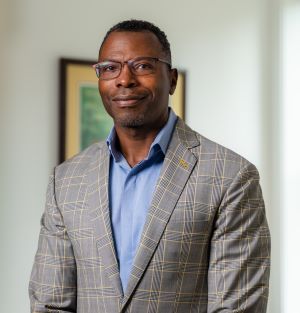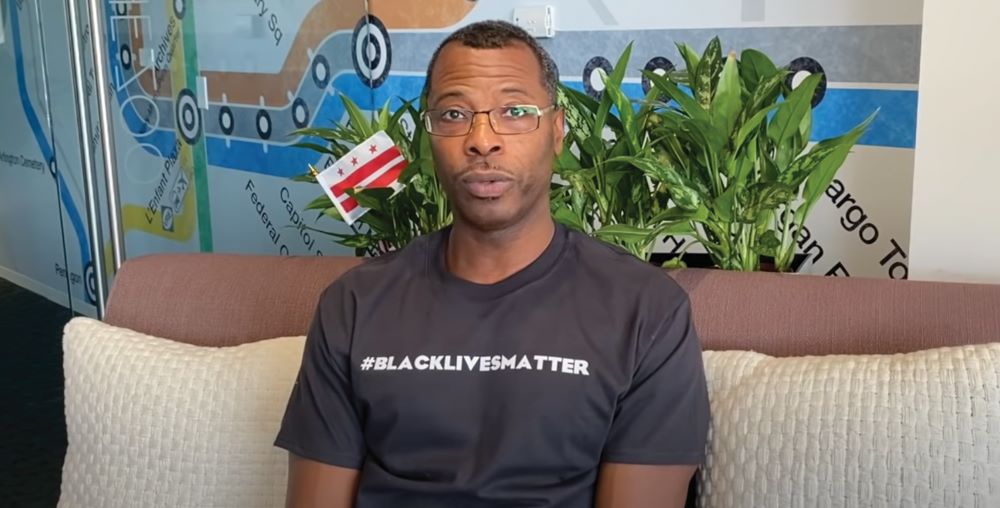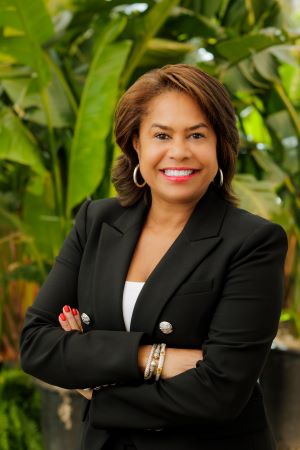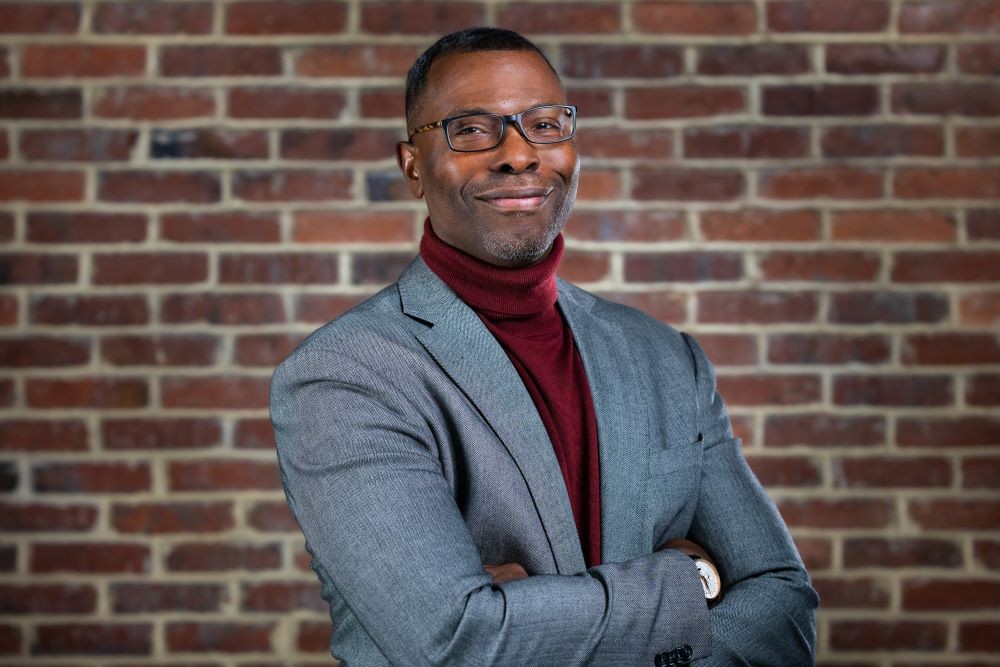On May 25, 2020, George Floyd was murdered by Minneapolis police officer Derek Chauvin, who kneeled on Floyd’s neck even after pleas from the handcuffed Floyd imploring to Chauvin that he could not breathe.
The killing, on a public street just before sunset, was captured on video by multiple witnesses, distributed widely and shocked the world. For many Black Americans, especially, the video was horrific if perhaps less shocking—police harassment and brutality are unfortunately an all-to-common occurrence for Black people in the U.S.
A little less than a year later, the City of Minneapolis agreed to pay $27 million to settle a wrongful death lawsuit brought by Floyd’s family and Chauvin was convicted of unintentional second-degree murder, third-degree murder and second-degree manslaughter. On June 25, 2021, Chauvin was sentenced to 22-and-a-half years in prison.
Public outcry and wide-ranging demonstrations helped convince many Americans to take a hard look at the systemic racism that was in place even before the formation of the United States. This racial reckoning and educational opportunity also manifested itself in the meetings and events industry, with a renewed emphasis on diversity, equity and inclusion, or DEI, in its many forms.

An Open Letter and Video on Race
Helping to lead the effort were 21 Black leaders of the meetings and tourism industry, who in early June 2020 issued an open letter voicing their unified perspective on racism in America as well as questions those in the hospitality and tourism industries should be asking themselves about the subject.
One especially poignant part of the letter read as follows: “Like every Black person in this country, we well know that at any point in time in any city in America our rights as citizens and yes, our lives, could be taken in a moment at the hands of someone who sees themselves as superior and ‘in control.’”
Six Black meetings industry leaders also released a powerful video that premiered July 14, 2020, at Destinations International’s virtual, pandemic-era 2020 Annual Convention. The video, “5 Questions About Race,” shared the executives’ personal experiences with racism both in their lives and in the tourism industry, and stressed the need for Black people to express their experiences and frustrations with a non-Black audience.
[Related: Black Destination Leaders Answer ‘5 Questions About Race’ in Powerful Video]
Four Years After Floyd Murder: Where Are We Now?

As the four-year anniversary of the George Floyd murder approached, and as the notion of DEI is coming under attack in many states, industries and in academia, Meetings Today reached out to a participant in both the open letter and video, Elliott L. Ferguson II, president and CEO of Destination DC and former national chair for the U.S. Travel Association. Ferguson is also a leading proponent of meetings and tourism industry DEI.
Following are six salient questions along with his responses.
1. What was the thought process behind the video and open letter?
The video and open letter stemmed from a critical moment in our industry. We were confronted with the realization that what happened to George Floyd, and other Black individuals, could easily happen to us. Yet, it seemed our industry wasn’t making significant strides in diversity.
The process began with a phone call from Al Hutchinson [president and CEO of Visit Baltimore], followed by discussions with others. As chairman of the U.S. Travel Association at the time, I was in a pivotal position to act.
2. Were you concerned about the reaction to putting yourselves out there like that?
Yes, we were all concerned. Putting ourselves out there went against the norms of exposing ourselves, especially as minorities in the workplace. We were taught to work harder to fit into environments that lacked diversity. However, we felt a responsibility to engage with the industry on this matter, not only because of its impact on us but also because of the industry’s need to focus on true diversity.
[Related: Black Meeting Profs CEO Jason Dunn on the State of DEIAB in the Meetings Industry]
3. It’s been almost four years since the video/letter, and the nation has really gone through a process of reckoning about the existence of systemic racism and the need for diversity, equity and inclusion. There seems to be pushback on many fronts now. What do you make of that?
Honestly, I’m not surprised by the pushback. As the industry and the country were forced to confront systemic racism, there’s now a tendency to dilute the message, especially in corporate America and some states. That’s why initiatives like Tourism Diversity Matters were created—to keep the conversation relevant.

4. In a very general sense, where are we at in the meetings and events industry concerning DEI?
In general, the meetings and events industry still sidelines DEI training. Many CEOs fail to realize that the conversation about DEI includes them and their lack of response. It’s crucial for the industry as a whole to prioritize this conversation.
5. What can the meetings and events industry do better to create inclusion for all?
To create inclusion for all, we need to prioritize education. This includes not only providing opportunities for diversity but also fostering an understanding of microaggressions and various aspects of true diversity.
It’s essential to have uncomfortable conversations to drive progress, especially among long-standing leaders who may find change challenging.
[Related: Zoe Moore on Why DEI Is Under Fire in the Meetings Industry and Beyond]
It’s not just about the Black community. It’s also about the Native American community, the differently abled community, the Latin American community, the Asian community and of course women’s rights and many more. We need to continue to have uncomfortable conversations so that we can truly progress, especially for leaders that have been in place for a long time. It’s harder for them to change.
Continuing from the previous point, specific areas like accessibility and amplifying efforts with the Native American community and differently abled or disabled communities require more attention. These efforts should resonate with the organizations we represent, our boards of directors and our marketing strategies.
6. What thoughts would you like to share with your colleagues and those just entering the meetings and events industry?
I believe we need to focus on unlearning certain behaviors and biases. Many of us were raised with societal norms that need to be reevaluated. This includes discussions about derogatory terms and their impact on communities. While younger generations have higher expectations regarding DEI, there’s still much progress to be made. These conversations must continue within our industry.
Today’s young career professionals have greater expectations of DEI and are demanding diversity in their work environments, but we still have a ways to go.
Julie Coker Offers Her Take

We also reached out to Julie Coker, president and CEO of the San Diego Tourism Authority, as well as a co-signer on the letter and participant in our June 26 "The State of DEI in the Meetings Industry and Beyond" webinar, for her opinion on the state of DEI.
"There has definitely been increased awareness and conversation around systemic racism and the need for diversity, equity and inclusion over the past few years," Coker wrote. "However, the pushback we are now seeing is unfortunately not surprising—disappointing, yes, but not surprising. Change, especially systemic change, will always face resistance from those who benefit from the status quo or feel threatened by shifts in the power dynamics.
"The pushback we are seeing is coming in varying degrees—those who outright deny there is systemic racism to those who will undermine or discredit the efforts," she continued. "However, having said that, it is important that we continue to advocate for change and create spaces for conversations and actions around DE&I to take place. So, stay resilient, identify your allies and have them amplify your message and continue to push for change. Failure is not an option."
Read more Diversity & Inclusion content from Meetings Today.







